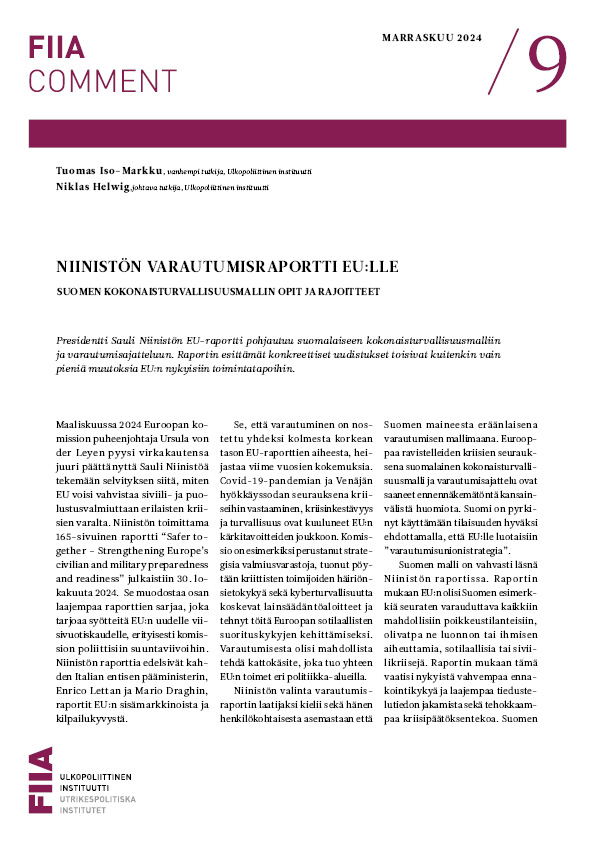Climate change policy-making has traditionally been the remit of environment ministries, but foreign ministries can play a valuable role in climate diplomacy by signalling high-level political commitment, contributing a better understanding of the interests and domestic drivers of climate policy in partner countries, and adding a more significant strategic dimension to climate diplomacy.
The creation of the European External Action Service (EEAS) in 2010 provided the European Union with an opportunity to build a European diplomacy that could place greater emphasis on climate change and other contemporary global issues.
In its current form, however, the EEAS has limited capacity for climate diplomacy, and the external capacity of the European Commission’s Directorate-General for Climate Action is similarly constrained. The current division of responsibilities between the EEAS and the Commission is a delicate compromise that is unlikely to be reopened in the short term, and both institutions face tight budgetary constraints.
Against this backdrop, EU climate diplomacy could be strengthened by mainstreaming climate change within the work of the EEAS, and strengthening cohesion between the EEAS and the Commission. This could be aided by greater strategic guidance for climate diplomacy from the Foreign Affairs Council and the European Council.








